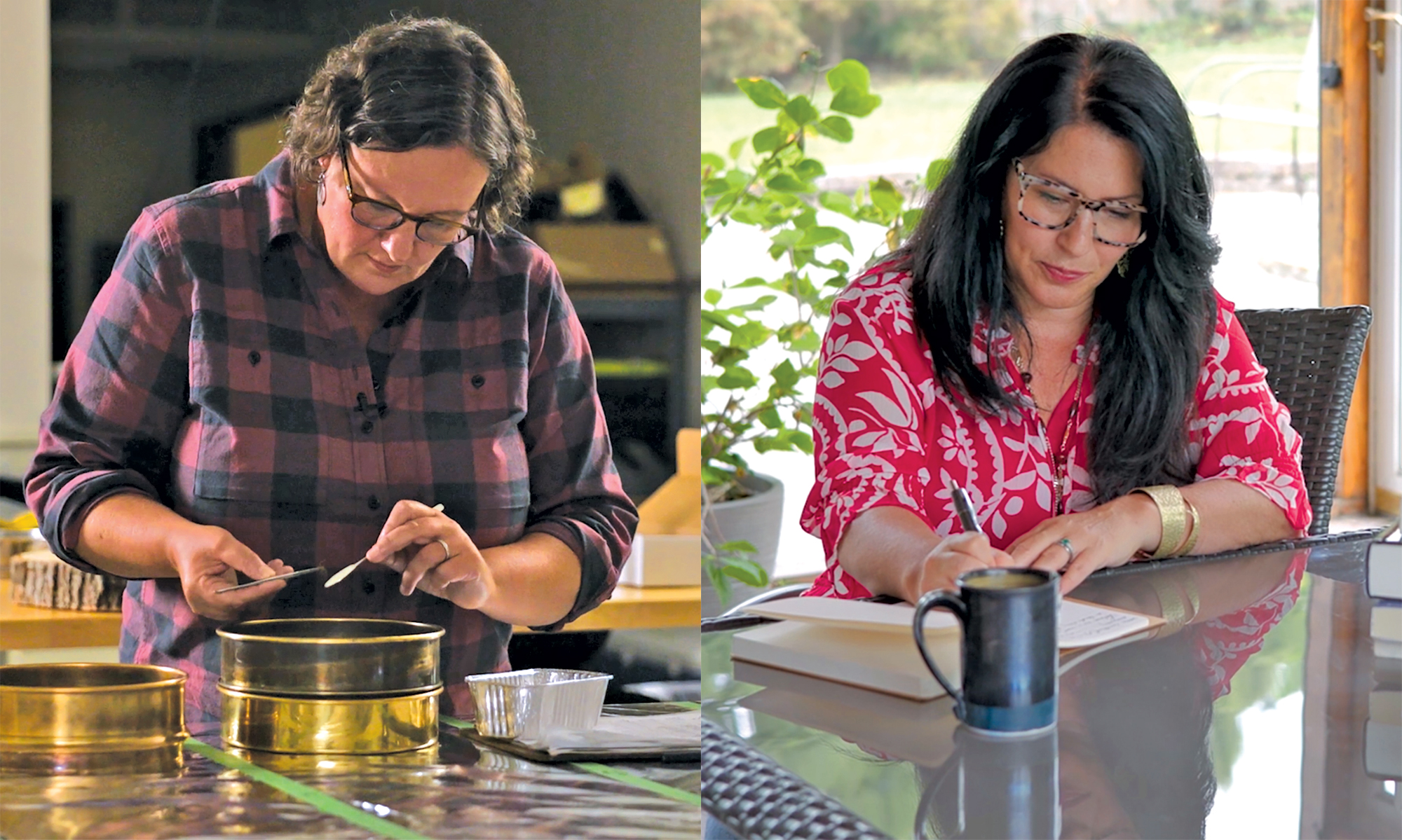

It may seem the 2023 John D. and Catherine T. MacArthur Foundation Fellowships (AKA “genius grants”) that were awarded to two University of Washington graduates recognize their work in disparate fields. Ada Limón is a poet. Lucy Hutyra is an environmental ecologist.
But look a little deeper and you will find that both awardees deal with life’s connections. “My obsessions,” Limón (pictured above, at right) explains in a video from the MacArthur Foundation, “really are all about how we are interconnected. I think there is a certain amount of suffering in poetry because there’s a great deal of suffering in living.” Hutyra (pictured at left), who worked as a UW research scientist from 2007 to 2009, says in another video, “That nexus between climate and health is incredibly important. The temperatures in cities around the world are terrifying. The impacts don’t impact everybody equally. We need to think about solutions that improve the livability of communities.”
Connections. Community. Striving to understand how the world around us—spiritual, physical—affects our lives, and how humankind can thrive. That is at the core of Limón’s and Hutyra’s work.
The MacArthur Fellowship is an $800,000, no-strings-attached award to extraordinarily talented and creative individuals as an investment in their potential. Here’s a look at both Limón and Hutyra:
Ada Limón, U.S. Poet Laureate
“Almost everything I write is fueled by the deep knowing that we all leave, that we all end, that there is an end to our story, and so for me, it’s essential to record and report and to do so in a way that emphasizes the song, that emphasizes the wonder. … The act of writing itself is a radical act of claiming a part of this moment in time, even though most light functions with a shadow. I’m interested in the balance. … I hope my poetry can help people reconnect to the wonder of the world. I hope they can feel a sense of ease, a wanting to reconnect to the world, to recommit to it.”
Lucy Hutyra, Boston University environmental ecologist
“Cities occupy about 3% of the global land and that 3% of land is where about 75% of our fossil fuel emissions occur. … Many models had previously thought of cities as this giant emitting source of greenhouse gases. But plants in cities function differently. … The trees that you have located in cities are in small fragments. They have more light, they are not competing with neighbors, they have more nutrients in the form of reactive nitrogen coming from tailpipes. … What I have been striving for is to find ways to have the information that city planners need available so that they could make better decisions that improve the livability of our cities.”